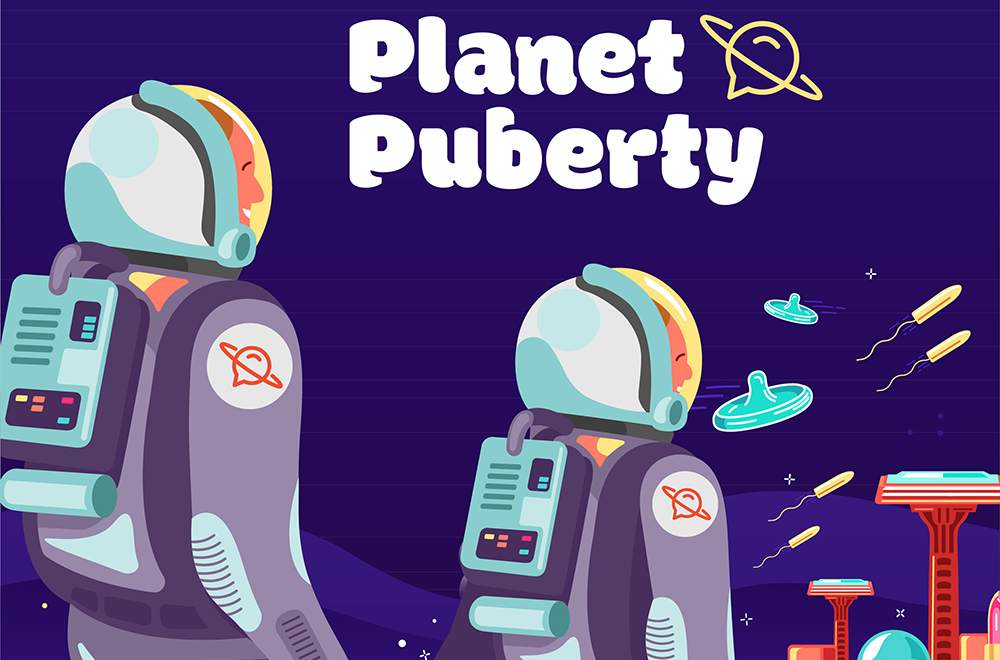Family Planning NSW has launched Planet Puberty, a website, podcast and webinar series for parents and carers of children with intellectual disability and / or autism spectrum disorder.
Puberty can feel like a brave new world, or even a whole new planet and for children with disability, there can be unique issues to address. The resource has been developed to help parents navigate the changes to their children’s bodies, emotions and social interactions that occure during adolescence.
The Planet Puberty website provides parents and carers with a range of inclusive and accessible digital resources, including factsheets, videos and useful books. These resources cover everything a child needs to know as they go through puberty, including information about body changes, hygiene, periods, emotions and relationships.
Planet Puberty is also launching a podcast series on May 24 , with guests including former Dolly Doctor Melissa Kang, sexologist and counsellor Jodi Rodgers from the Netflix show ‘Love on the Spectrum’, as well as the voices of parents and carers of children with disability. The podcast runs until November.
Family Planning NSW senior health promotion officer Ee-lin Chang said the organisation has worked alongside people with intellectual disability for more than 30 years.
“At Family Planning NSW, we respect the rights of people with disability to have control over their lives and make their own decisions about their reproductive and sexual health,” Chang said. “Through Planet Puberty, we’re giving parents and carers of children with intellectual disability and autism the tools to support them to live a more independent, healthy and happy life as they grow,” she said.
Planet Puberty is also producing a series of educational webinars with Family Planning NSW psychologist Zoe Semmler and Associate medical director Dr Clare Boerma, who will help parents prepare their children for important aspects of puberty including the physical and emotional changes associated with puberty.
According to Chang, parents and carers of children with intellectual disability and autism have been requesting tailored information to help them know when, and how, to start the conversation about puberty.
“We are pleased to be able to bridge this gap by combining our expert reproductive and sexual health information with the experience of people with disability and their families,” she said.
For more information visit: www.dss.gov.au

